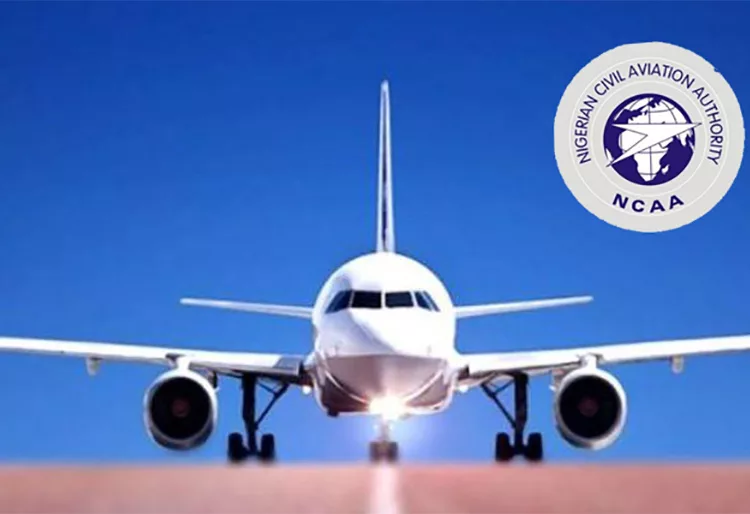The chief executive officer, West Link Airlines, Capt. Ibrahim Mshelia, has bemoaned Nigeria’s poor investment in research and development for the growth of the nation’s aviation sector.
Capt. Mshelia, who disclosed this in an interview recently, said what the government did was to borrow or copy and paste policies without taking Nigeria’s peculiar environment into consideration.
According to the aviation expert, government, policymakers and the operators should know that how to manage the airspace matters a lot to the success of a nation’s domestic aviation.
“Another issue is that the Nigerian government, policymakers and the operators themselves do not contribute any much to research and development of aviation. In the country, all we do is borrow or copy and paste.
“Our operating environment is different and so are all other places. We only have one common thing world over and that is: all planes fly in the space above the ground, but how you manage the airspace matters a lot to the success of your domestic aviation. A nation that has no aviation today is a nation left behind. The more robust your aviation is, the better and easier it is to grow your economy.”
He suggested a change of approach by the government and operators in a bid to ensure success of the industry, while also adhering to international best practices.
He also emphasised that aviation was not a local business, even though it is locally domesticated, but lamented that Nigeria usually goes overboard to formulate and execute policies for operators and other businesses in the sector.
He mentioned multiple taxation, reduced operating hours, multiple processes before flights, infrastructural deficits, interferences with the service providers, lack of business relationship with government service providers, import duty on spares and delays in spares clearing as some of the challenges confronting the operators.
He added: “Another issue is that the Nigerian government, policymakers and the operators themselves do not contribute any much to research and development of aviation. In the country, all we do is borrow or copy and paste.
“Our operating environment is different and so are all other places. We only have one common thing world over and that is: all planes fly in the space above the ground, but how you manage the airspace matters a lot to the success of your domestic aviation. A nation that has no aviation today is a nation left behind. The more robust your aviation is, the better and easier it is to grow your economy.”
He suggested a change of approach by the government and operators in a bid to ensure success of the industry, while also adhering to international best practices.
Speaking on the high ticket cost, Capt. Mshelia, government of other African countries’ or their Civil Aviation Authorities (CAAs), do not charge the airlines as much as they are charged in Nigeria.
The foremost aviator, further stated that the nation’s aviation sector does not need up to 10,000 workers to operate Optimally in the entire country.
“Other African countries’ governments or their Civil Aviation Authorities (CAAs), do not charge the airlines as much as we charge them here in Nigeria. When you charge an airline a particular amount of money, the airline transfers it to the passengers. This is why we are running around in cycles and we are not going to get anywhere when we keep running around in circles.
“Employment generation in Nigeria is about ‘who knows who.’ Every minister comes and competes over the number of people they employ from their villages and others. We were all attacking Princess Stella Oduah as a minister of Aviation for employing about 2,000 additional people, Sen. Hadi Sirika, came and upped it more. When Oduah came, the entire workforce in the country’s aviation sector was about 33,000, but when Sirika came, he took it to about 40,000.
“I don’t know what the total employment of aviation is in the six aviation agencies at the moment. I think we should be above 45,000 now, but the fact is that we don’t need up to 10,000 workers in the entire country,” he stated.
Capt Mshelia, stated that 20 per cent of the workers in NAMA are not not supposed to be employed, saying the authority is a professional department needing just 10 per cent of non-professionals to operate.
“Also, what does the Nigerian Meteorological Agency (Nimet) do for aviation? It provides aviation weather and forecasts. The control tower used to have an observatory and they could use that. Nimet provides weather forecasts for the whole country; flood, rain and harmattan. So, why is aviation alone paying for it?
“Nimet in the first place should not be under aviation; they can charge aviation for the services they provide to them and that cannot be up to 10 per cent of their overhead costs today, but we are now paying a whole directorate with luxury vehicles and directors.
“This is at the expense of what? Giving us just a forecast? When there was no NiMet, were we not flying aeroplanes?
“Now, you come down to the Nigerian Safety Investigation Bureau (NSIB), which is an intermodal investigator. NSIB should no longer be an aviation problem; it should go under the presidency and any investigation it does for aviation, it should charge it appropriately or aviation contributes to it nominally.
“By the time you do all these, it would reduce the overhead costs of the industry.”
“Now, to the NCAA, it is the regulatory agency of the industry. It is about safety. So, it must be funded very well by the aviation industry itself so that inspectors don’t go about delaying operators unnecessarily due to lack of cash. For NAMA, it is providing Air Navigation Services and mainly ground equipment and air traffic control services.
How much does it cost and how many people do you need? The Air Traffic Controllers (ATCs), air traffic managers, engineers who repair the radios and the navigational equipment? I can bet you, you don’t need 20 per cent of the people you have in NAMA today because it’s a professional department needing just 10 per cent support from non-professionals.
ATCs, AIS staff and the engineers are the most important in NAMA, all the administrative staff should be only 10 per cent while the technical staff should be the remaining 90 per cent. How much do they need to procure and maintain these equipment? If the 5 per cent levy is managed properly, it can buy them their Very High Frequency Omnidirectional Range (VOR) when it’s due, do their training and every other thing. NAMA is over-bloated also with so many people.
“Also, what does the Federal Airports Authority of Nigeria (FAAN) provide for the airlines? Security and airport facility. FAAN only secures and maintains the airports, while the runway is already built. That is a government property and it can last for ages before we need to repair it if built well in the first place.
“Runways built well can last 30-50 or more years before any major repairs. Why is ours different? The levies if saved and managed properly can take care of that. So, the government can give that for free to local operators and let foreigners pay for the services.
“I remember in Ghana, when I was operating my AOC there, we were only paying $10 as landing fee, we were not paying for navigation. So, we were able to cut the tickets low for the passengers because all these charges are transferred to the passengers,” he stated.





